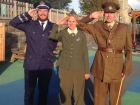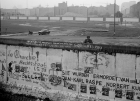Living Memory
Studying events within living memory can help young children to gain an early understanding of chronology and that history is made all of the time. It also helps them to understand the world and their place within it. Through this Key Stage 1 unit of study, children are introduced to historical concepts, vocabulary and representations through exploring the ways in which life has changed over the time of their parents, grandparents and great-grandparents. This can be used to reveal aspects of national events or changes where possible. Popular areas for this topic include family, toys, holidays, the climate, technology, school, among many others. In this section you will find articles and guidance to help you plan exciting and creative ways to introduce your children to the study of history.
-

Little coins, big histories
ArticleClick to view -

Exploring the history of our place with very young children
ArticleClick to view -

Teaching ‘changes within living memory’: making the most of your school
ArticleClick to view -

World War II: breathing life into a local history enquiry
ArticleClick to view -

What do children think about the the royal family and the coronation of King Charles III?
ArticleClick to view -

The Coronation of King Charles III
ArticleClick to view -

The Coronation
ArticleClick to view -

Significant anniversaries: the infamous Beeching Report 1963
ArticleClick to view -

What’s in your pocket, Peg?
ArticleClick to view -

Teaching about the German Occupation of Jersey through the Occupation Tapestry
ArticleClick to view -

Scheme of work: Significant historical events, people and places in their own locality
ArticleClick to view -

Teaching about Remembrance Day in EYFS
ArticleClick to view -

Back to basics: using artefacts in the classroom
ArticleClick to view -

50th anniversary of the UK’s first official Pride march: 1 July 2022
ArticleClick to view -

Using photographic evidence to explore the impact of the Berlin Wall
ArticleClick to view -

Ten texts for the Platinum Jubilee
ArticleClick to view -

Happy and Glorious: exploring and celebrating the Platinum Jubilee
ArticleClick to view -

The Queen in procession
ArticleClick to view -

Jubilee medals: celebration and creation
ArticleClick to view -

Pull-out posters: Primary History 90
ArticleClick to view

